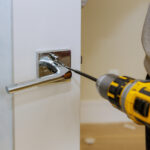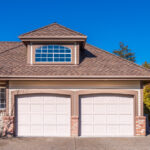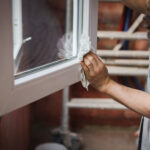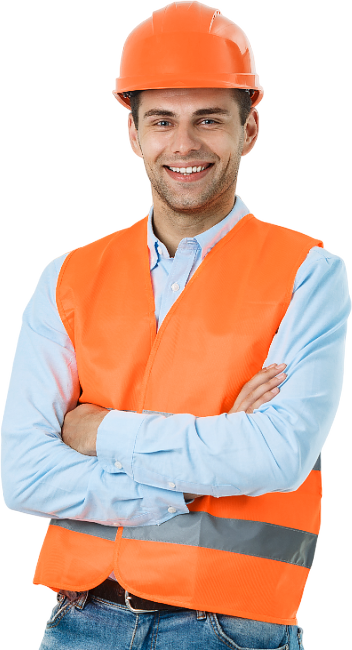Learn when it’s time to call a professional locksmith for a complete home security assessment. From lock inspections to safety consultations, this guide helps Canadian homeowners protect their property with expert advice and practical solutions.
Why a Home Security Assessment Matters
In today’s world, keeping your home secure is more important than ever. Whether you’re moving into a new property, upgrading your current security system, or just want peace of mind, a professional home security assessment can help you identify vulnerabilities and make informed decisions. Canadian homeowners face unique challenges, from harsh weather affecting locks to region-specific safety concerns. That’s why it’s essential to know when to call a professional locksmith for a complete security evaluation.
What Is a Home Security Assessment?
A home security assessment is a thorough inspection of your property’s entry points, locks, alarm systems, lighting, and other security features. During this process, a licensed home locksmith evaluates your home for potential risks and recommends improvements. The goal is to reduce the chances of break-ins and ensure your family and belongings are safe.
Why It’s Not Just About Locks
Many homeowners think security starts and ends with a good deadbolt. While locks are crucial, a proper safety assessment considers many other factors, including:
- Window and door frame strength
- Exterior lighting and visibility
- Access control systems
- Garage and shed security
- Neighbourhood crime trends
By understanding the bigger picture, a professional locksmith can offer tailored security advice to suit your home and lifestyle.
Signs You Need a Security Evaluation
Not sure if you need a home security check? Here are some common signs that it’s time to call in a professional for a security evaluation or security consultation.
You’ve Recently Moved In
One of the first things new homeowners should do is schedule a lock inspection and full security audit. You never know how many keys the previous owners gave out, or what kind of security systems are already in place. A professional locksmith service can help you rekey or replace all external locks and suggest upgrades based on your home’s layout.
Locks Are Old or Damaged
Canadian winters can be tough on locks. If your locks stick, rust, or don’t latch properly, it’s time for a lock upgrade. A lock inspection can reveal whether your current hardware meets modern security standards. Older locks may be easier for intruders to pick or bump, making them a weak point in your home’s defences.
There’s Been a Break-In Nearby
If your neighbourhood has seen recent break-ins, don’t wait to become the next target. A security audit can highlight areas where your home might be vulnerable. Professional locksmiths are familiar with local crime trends and can recommend strategic improvements, like installing motion-sensor lights or reinforcing door frames.
You’ve Lost a Key or Had One Stolen
Lost or stolen keys are a serious security risk. Even if you think they’re gone for good, someone could find them and use them to gain access. In this case, it’s smart to call a home locksmith for a rekeying service or full lock upgrade. It’s a small investment for peace of mind.
Your Lifestyle Has Changed
Security needs evolve over time. If you’ve recently had a baby, started working from home, or welcomed a roommate, your home may require a new security consultation. A locksmith can assess your home’s layout and recommend child-safe locks, better lighting, or smart technology to suit your new daily routine.
What a Professional Locksmith Looks For
When you schedule a home security assessment with a certified locksmith, they bring years of experience and training to the table. Here’s what they typically examine during a residential security check:
Door and Window Security
Exterior doors should be solid core or metal with secure hinges. A locksmith will check each door’s frame, strike plate, lock type, and alignment. For windows, they’ll ensure locking mechanisms are functional and recommend secondary locks or sensors for added protection.
Canadian Standards for Doors and Locks
In Canada, locks and door hardware should meet standards like the ULC (Underwriters Laboratories of Canada) rating. A professional locksmith understands these benchmarks and can advise whether your current setup meets the latest safety codes.
Garage and Shed Access
Garages and sheds are often overlooked in a security assessment. These spaces can store valuable tools or provide access to your main home. A locksmith will check for proper locks, door strength, and visibility. They might recommend upgrading padlocks or installing motion-detecting lights nearby.
Lighting and Visibility
Dark entryways and hidden corners can help intruders go unnoticed. A security expert will assess whether your home’s exterior lighting is adequate. They may suggest installing energy-efficient LED floodlights or solar-powered pathway lights to improve visibility.
Alarm and Surveillance Systems
While locksmiths don’t always install full alarm systems, many are trained to integrate locks with smart home technology. During your security consultation, they can inspect current systems and recommend upgrades that work with mobile apps or voice assistants.
Benefits of a Professional Security Audit
Hiring a locksmith for a security audit offers more than just peace of mind. It’s a proactive step that delivers real value to Canadian homeowners.
Comprehensive Expertise
Contact our certified technicians to benefit from their years of hands-on experience. Unlike general contractors or DIY assessments, locksmiths specialize in physical security and understand how burglars think. They know where to look, what to test, and how to fix problem areas effectively.
Customized Security Solutions
No two homes are alike. A professional will tailor their security advice based on your property’s size, layout, location, and your personal needs. Whether you live in a downtown condo, suburban home, or rural farmhouse, your security setup should reflect your environment.
Cost-Effective Improvements
Many homeowners assume that improving security means expensive renovations or installing high-tech systems. In reality, a few small changes—like rekeying locks, adding deadbolts, or installing window bars—can dramatically improve home safety without breaking the bank.
Insurance Benefits
Some insurance providers offer discounts for homes with enhanced security features. A documented security evaluation from a licensed locksmith can support your claim and potentially lower your premiums.
Peace of Mind
Knowing that a certified professional has checked your home from top to bottom lets you sleep easier at night. Whether you’re away on vacation or just out for the day, a well-secured home is less likely to be targeted by intruders.
When to Schedule a Lock Inspection
One of the most common services offered by locksmiths is a lock inspection. This service evaluates the condition, effectiveness, and security level of all the locks in your home.
Annually or Bi-Annually
Just like furnace inspections or roof checks, your locks should be inspected at least once a year. Extreme Canadian weather can cause locks to freeze, rust, or wear down faster than expected. Regular checkups can help you catch these issues early.
Before and After Major Life Events
Whether you’re buying a new home, starting a renovation, or going through a separation, it’s a good idea to reassess your residential security. A locksmith can make sure your locks and entry systems match your new circumstances.
After a Security Breach
If someone has broken into your home or tried to, don’t delay—schedule a lock inspection right away. Even if the intruder didn’t get in, your locks may have been damaged or compromised. A locksmith can repair or replace them and offer tips to prevent future incidents.
DIY Tips Before Calling a Locksmith
While a professional security consultation is the best way to protect your home, there are a few things you can do yourself to prepare or improve your security in the meantime.
Check All Entry Points
Walk around your home and test every door and window. Look for loose frames, cracked glass, or locks that don’t turn smoothly. These are signs that something needs to be repaired or replaced.
Upgrade Basic Locks
If your front door still uses a spring-latch lock, consider upgrading to a deadbolt. Even better, install a double-cylinder deadbolt, which requires a key on both sides and provides extra protection against forced entry.
Improve Outdoor Lighting
Install motion-sensor lights near entrances, garages, and pathways. Not only do these lights deter criminals, but they also make it safer for you and your family to come and go at night.
Trim Landscaping
Overgrown shrubs and trees can give burglars a place to hide. Keep your landscaping trimmed so your entry points are visible from the street and your neighbours can help keep an eye out.
Secure Sliding Doors
Sliding patio doors are common in many Canadian homes but are often less secure. Use a security bar or install a secondary locking mechanism to reinforce them.
Install Door Viewers
If your door doesn’t have a peephole or smart viewer, it’s worth installing one. Being able to see who’s knocking before you open the door is an essential part of home safety.
Document Your Home’s Security
Make a checklist of your home’s existing security features. Include lock types, alarm systems, lighting, and any smart devices. This will help your locksmith understand your current setup during the security audit.
When you’re ready for professional help, for professional locksmith services, Fortify Services is here to help Canadians protect what matters most.
How to Choose the Right Locksmith for a Home Security Assessment
Selecting a qualified professional for your home security assessment is just as important as the assessment itself. Not all locksmiths offer the same level of service or expertise, and choosing the right one ensures that your security audit is thorough, compliant, and tailored to your unique needs.
Look for Certification and Licensing
In Canada, locksmiths should be licensed and, in many provinces, certified under specific trade regulations. For example, in Ontario, locksmiths must follow guidelines set by the Ministry of Training, Colleges and Universities. Always ask to see credentials and ensure the locksmith complies with local laws and safety standards.
Why Licensing Matters
A licensed locksmith will follow Canadian safety regulations and building codes, ensuring that any lock upgrade or installation is done correctly. This protects not only your property but also your liability if something goes wrong later.
Ask About Residential Experience
Not all locksmiths specialize in residential work. Some focus on automotive or commercial properties. When booking a security consultation, confirm that the locksmith has experience with residential security. They should be familiar with the types of locks, entry points, and vulnerabilities specific to homes.
Check Reviews and References
Before hiring, read online reviews and ask for references. Look for feedback from homeowners who have received home safety services similar to what you need. A reputable locksmith will gladly provide references and customer testimonials.
Inquire About Tools and Techniques
Modern locksmiths use advanced tools for assessments, including lock-picking guns, borescopes, and digital scanners. They should also be knowledgeable about smart locks, home automation, and integrated security systems. Ask what tools or technology they use for their security evaluation.
Evaluate Their Professionalism
From the first call to the final report, the locksmith should demonstrate professionalism. Clear communication, punctuality, and detailed documentation are signs you’re dealing with a trusted expert. After the lock inspection, you should receive a written summary that outlines risks, recommendations, and next steps.
If you’re looking for professional locksmith services with proven residential experience, Fortify Services is your local expert in Canadian home security.
What to Expect During Your Home Security Consultation
When you schedule a home security assessment, it helps to know what’s involved. Here’s a step-by-step look at what typically happens during a full security consultation with a licensed locksmith in Canada.
Initial Walkthrough
The locksmith will begin with an exterior walkthrough of your home, inspecting all entry points including front and back doors, garage doors, basement entrances, and accessible windows. They’ll take note of lock types, door strength, and existing security features.
Interior Assessment
Next, they’ll check internal doors, especially those that connect to garages or shared spaces in duplexes or townhomes. Locks on these doors should meet the same standards as your exterior ones. They may also inspect safes, smart locks, or any security hardware you’ve installed.
Review of Lighting and Visibility
Lighting plays a big role in home safety. The locksmith will assess whether your property is well-lit at night and suggest strategic lighting placements. Motion-sensor lights, dusk-to-dawn lights, and solar-powered options are often recommended.
Lock Testing and Inspection
Each lock will be tested for functionality, alignment, and compliance with Canadian safety standards. The locksmith may also check for signs of tampering or wear. If any locks are outdated, they’ll suggest a lock upgrade to improve your home safety.
Security System Review
For homes with security systems, the locksmith will check system integration with your locks. If you don’t have one, they may recommend basic deterrents like video doorbells, smart locks, or alarm sensors.
Detailed Security Audit Report
After the assessment, you’ll receive a report summarizing findings and outlining recommended changes. This could include rekeying, hardware upgrades, or adding security devices. The report serves as a valuable tool for planning your next steps and may also help with home insurance documentation.
Upgrading Your Locks: What You Need to Know
One of the most common outcomes of a security evaluation is the need for a lock upgrade. Modern locks offer better protection, increased durability, and smart features that enhance convenience and safety.
When to Consider a Lock Upgrade
- Your locks are more than 10 years old
- You’ve experienced a break-in or attempted break-in
- Your keys are lost or unaccounted for
- You want to integrate smart home technology
Types of Modern Locks
Deadbolts
High-grade deadbolts are still one of the most reliable options for door security. Choose ones rated Grade 1 by the ANSI/BHMA or those certified by the ULC in Canada for maximum strength and protection.
Smart Locks
Smart locks offer keyless entry and remote access control via smartphone apps. Some models allow you to monitor entry logs, grant temporary access to guests, and receive alerts if someone tries to tamper with the lock.
Multi-Point Locking Systems
Common in newer Canadian homes and patio doors, these systems lock at multiple points along the door frame. They offer superior resistance to forced entry and are ideal for doors exposed to high wind or cold weather conditions.
Keyless Entry Systems
These systems use PIN codes, fingerprint scanners, or RFID cards. They’re ideal for families with kids or seniors who may struggle with keys, and they eliminate the risk of lost or stolen keys entirely.
If you need help choosing the right option, our certified technicians at Fortify Services can guide you through the best solutions for your home and budget.
Common Mistakes Homeowners Make With Security
Even with the best intentions, many homeowners make mistakes that compromise their residential security. Avoiding these missteps can save you from costly break-ins or safety hazards.
Relying on One Lock Per Door
Many people assume a single lock is enough for their exterior doors. However, adding a second layer—like a deadbolt or smart lock—significantly increases protection. Use multiple locking mechanisms for high-risk entry points.
Hiding Spare Keys Outside
Under the doormat, in a flowerpot, or inside the mailbox—these are the first places an intruder will check. Instead, leave a spare key with a trusted neighbour or install a secure key lock box in a discreet location.
Ignoring Window Security
Ground-level and basement windows are popular entry points for burglars. Reinforce them with locks, bars, or security film. In sliding windows, place a metal rod in the track to prevent it from opening.
Delaying Lock Repairs
If a lock sticks or doesn’t fully latch, don’t ignore it. A faulty lock is a weak point in your home’s defences. Call a home locksmith to inspect and repair or replace it as soon as possible.
Failing to Update Security After Major Changes
Whether it’s a new roommate, a recent divorce, or renovations, change should trigger a reassessment of your home’s security. Rekey locks, update access codes, and reevaluate your entry points during these transitions.
Staying Ahead of Security Risks in Canada
Security threats can vary across the country. From urban theft to rural property invasions, understanding local risks helps you make smarter decisions about your home’s protection.
Urban vs. Rural Security Needs
In cities like Toronto, Vancouver, or Montreal, break-ins may be more frequent, targeting high-value electronics or jewellery. In rural areas, thieves may target tools, vehicles, or fuel. A security audit tailored to your region can help address these specific risks.
Seasonal Considerations
Canadian winters can freeze locks and weaken door frames. Summer vacations may leave homes empty and vulnerable. Schedule a lock inspection before peak seasons to prepare your home against weather-related wear or increased burglary risks.
Community Awareness
Get to know your neighbours and participate in community watch programs. Many Canadian neighbourhoods share crime alerts and safety tips through social media. A professional locksmith can also advise on collaborative community solutions like shared lighting or surveillance.
Staying Updated With Technology
Security technology is evolving quickly. Regular security consultations ensure your home keeps up with changing threats and innovations. From smart locks to remote monitoring, these tools can give you more control over your property’s safety.
Conclusion: Secure Your Peace of Mind with Fortify Services
Your home is more than just a building—it’s your safe space, your investment, and your family’s sanctuary. A professional home security assessment is one of the most effective ways to protect it. From detailed lock inspections to customized security consultation services, Fortify Services helps Canadian homeowners strengthen their defences and stay ahead of risks.
By understanding when to seek help, what to expect from a security audit, and how to maintain your residential security, you’re already taking the first step toward a safer home. Don’t wait until something goes wrong—be proactive, informed, and prepared.
If you’re ready to enhance your home safety today, contact Fortify Services for expert locksmith solutions designed for Canadian homeowners. Our team is here to offer practical advice, skilled service, and lasting peace of mind.









